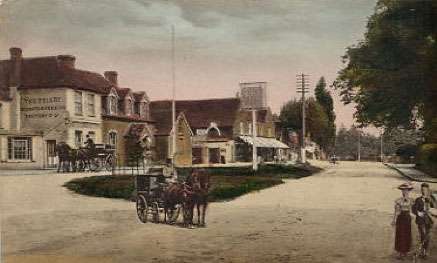
Postcard of the Onslow Arms, post-marked 1908 (by kind permission of Roy Pobgee), one of the Cranleigh pubs that may have been flouting DORA’s regulations on ‘treating’
At the Guildford Borough Bench, a bar attendant and the manageress of the Lion Hotel in Guildford were both fined £5 on two counts of buying a round of drinks for other people. This was known as ‘treating’, and was forbidden during the war under DORA, the Defence of the Realm Act. In court, it was said that ‘treating was going on wholesale, in spite of the law’.
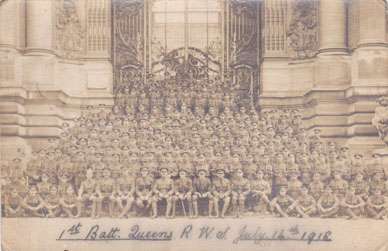
1st Battalion The Queen’s: where are they?
On July 14th, French National Day, the 1st Battalion The Queen’s (Royal West Surrey) had a photo taken in front of a grand building. They look very smart and well disciplined. This was the regiment in which many Cranleigh men served. After their brave exertions and considerable losses in the Battle of the Lys, they were having some rest this month in the area of Brandhoek, a few miles west of Ypres. Perhaps a reader knows where this photo was taken.
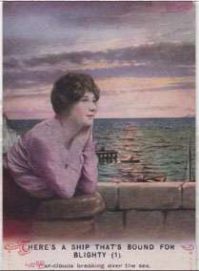
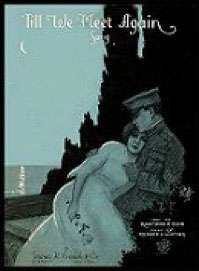
Left: Popular song of 1918: lyrics by Worton Davies to music by Lilian Shirley (1916)
Right: Another 1918 favourite: song by Raymond B. Egan and Richard Whiting (1918)
Joe Cheesman, the Cranleigh man who had become a prisoner-of-war in April, had been moved by his German captors from his work as a mechanic in a motor workshop. His letters home describe how, with other prisoners, he had been put into ‘a big, empty factory’, from which working parties went out every day. After a week, 140 of them were moved to another camp not far away. The food was not so good there but at least the camp was registered with the Red Cross, so that they had received some soap at last! Joe was not allowed to disclose his whereabouts in any of his letters, but after the war he told his family that he had not been taken to Germany, despite his address of ‘Limburg an der Lahn’, but was all the time behind the lines in Belgium. Back at home, though, his mother was told by the Central POW Committee that ‘the address “Limburg a/Lahn” is not sufficient for letters and parcels’, so Joe had not yet heard anything from his family.
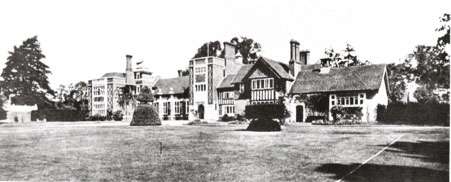
Wyphurst House in 1924
The Hambledon Tribunal was still meeting every two weeks, trying to be fair in granting exemption from military service, while still securing as many men as possible for the armed services. Sir Charles Chadwyck-Healey of Wyphurst – now St Joseph’s school – applied to the Tribunal on July 10th on behalf of his coachman, G.T. Card, aged 49, declaring that he ‘could not be any use in the Army’. ‘If the worst comes to the worst,’ he said, ‘I shall have to put him on the land.’ (This would have ensured he was exempt.) ‘I have been having German prisoners, but I have not been able to get much work out of them’ (laughter). It is worth noting that Sir Charles was using a coach in 1918: perhaps it was because the use of cars was severely restricted.
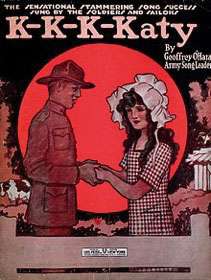
‘K-K-K-Katy’ by Geoffrey O’Hara, published in New York in 1918
The mood of local people may be seen in their popular songs. A song annual on sale this month by The Piano House in Guildford (price one shilling) included these titles: ‘There’s a ship that’s bound for Blighty’, ‘When the bells of peace are ringing’, ‘I never knew how much I loved you till you said “Goodbye”’, ‘I don’t want to go back’ and ‘Ten days’ leave’.
In a different vein, the Canadian song ‘K-K-K-Katy’ strikes us as offensive nowadays, as it makes fun of someone with a stammer, but it was enormously popular as a marching song with the Canadian, U.S. and British soldiers, as they marched through France. The chorus goes:
K-K-K-Katy, beautiful Katy,
You’re the only g-g-g-girl that I adore,
When the m-m-m-moon shines over the cow shed,
I’ll be waiting at the k-k-k-kitchen door.
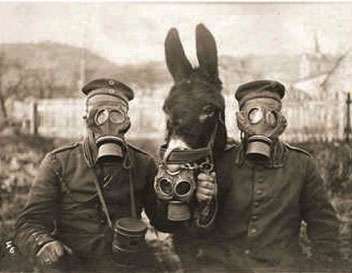
Gas masks for both soldiers and horses
The Surrey Advertiser announced that ‘Nut shells and fruit kernels are urgently needed for the making of charcoal for anti-gas respirators, and all are urged to save and collect them.’ They were to be sent in bags to Captain Rickett, Gas Works, Southend-on-Sea.
The Cranleigh History Society meets on the 2nd Thursday of each month. On Thursday 12th July there will be a guided outing to Dunsfold. Meet at The Sun at 2.30pm.







I am trying to find the history of Wyphurst house. There was a Chapel Dedicated there in 1908. Where can I find the history?
Hi John,
After doing some research there is very little information online as to the history of Wyphurst house. Joy Horn, who writes our ‘Joy of Cranleigh’ article may have some information on it. Her E-mail is
I hope this helps.
Cranleigh Magazine Admin